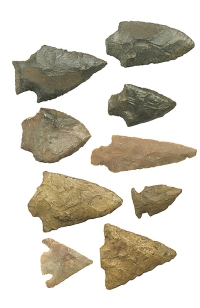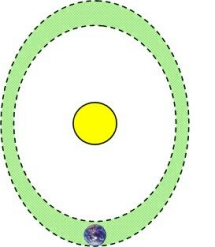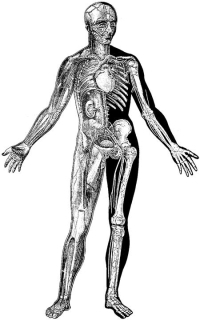
Matthew 16 shares an important moment in the life of Jesus. In 16:13, he asks his disciples what the people say about his identity. There are many answers: John the Baptist, Elijah, one of the prophets of old. But then, he directs the question to his disciples themselves, “Who do you say that I am?” Peter responds immediately with his well-known confession, “You are the Christ, the Son of the living God.”
We might wonder why Jesus was asking these questions. Surely he had heard the comments of the people. One does not need special powers to know the opinion of the crowd. And why did he interrogate his disciples personally with the same question? Really, Jesus already knew where the loyalties of his disciples lay. The Bible says that God can see the heart of man.
Jesus asked them to make a distinction. “The people say many things, but what do you say?” It was a personal question to force his disciples to ask themselves, “Who do I say that Jesus is?” They had to respond. They could not just say “I don’t know, ” and they couldn’t just offer the popular responses of the people. They had to think about the question and answer for themselves. Who do I say that Jesus is?
Jesus is asking us the same question today, “Who do you say that I am?” We have to give an answer.Matthew 10:32-33 says Jesus listens to what we say about him, and he will judge us by our words. We have to answer him and he wants an individual response. It doesn’t matter what the world says; Jesus asks, “Who do you say that I am?”
The Son of God – The Nature of His Being
Peter answered Jesus by saying, “You are the Christ, the Son of the living God.” To which Jesus practically responded, “Yes, that’s right.” “Blessed are you , Simon Barjona, because flesh and blood did not reveal this to you, but My Father who is in heaven” (16:17).
Today, the world says many things about the nature of Jesus. Of course, there are some who doubt the very existence of Jesus. There are men who make Jesus out to be a fraud or a crazy man. However, the Bible paints Jesus in a different light. He was not just a man; he was the Son of God.
John opens his gospel beautifully, introducing Jesus as “the Word.” “In the beginning was the Word, and the Word was with God, and the Word was God…and the Word became flesh, and dwelt among us” (John 1:1, 14). Jesus was not man; he is God, but he made himself man and came to the earth to live among us. Paul says that while Jesus was equal to God, he left behind his deity in order to save mankind (Philippians 2:5-11).
Incredible! The creator made himself a baby that needed the nourishment and comfort of a mother. The All Powerful made himself man to be tempted and to conquer temptation. Jesus was the Son of God, Jehovah in the flesh.
That is what the Bible says, but what do you say? Jesus is asking you “Who do you say that I am?” It’s one thing to read the Bible and to know what the Bible says, but we have decide to believe or not. Do you believe that Jesus is the Son of God?
The Christ – The Nature of His Purpose
“You are the Christ, the Son of the living God” (Matthew 16:16). Peter said that Jesus was the Son of God, but also he was the Christ. “Christ” was not the last name of Jesus. We say Jesus and Christ together so often that sometimes we think of “Christ” as a name. However, “Christ” is a title that has the same meaning and usage as the word “Messiah” in Hebrew.
It means “the Anointed One” and refers to the custom of anointing the kings to initiate their reign (1 Samuel 10:1). Also the priests and the prophets were anointed in a similar manner (Exodus 28:41; Leviticus 4:3, 5, 16; 1 Kings 19:16; Psalm 105:15).
But “the Christ”, “the Anointed One”, also referred to one promised in the Old Testament who would come as prophet, priest, and king at the same time. While the Old Testament says time after time, “Christ is coming”, it is the purpose of the gospels in the New Testament to say “the Christ is here” and his name is Jesus. At the beginning of his ministry, Jesus read from the book of Isaiah in a Jewish synagogue declaring his identity as the Anointed One, the Christ (Luke 4:17-21).
However “Christ” was not just a title to wear; it was also a purpose to fulfill. The Jews were waiting for a Messiah that would save his nation from the Romans, a king that would reign physically in Jerusalem and a warrior who would fight a physical battle. Even Peter, who was first to say, “You are the Christ” in Matthew 16 did not fully realize the significance of his words.
Peter did not understand at the cross, when Jesus was nailed to wood, when he died by the hands of man in order to save all mankind. Then Peter and the rest of the disciples, who had sworn their loyalty to Jesus, fled.
They did not understand or remember Jesus’ words in Matthew 16:21, that the Christ must, “be killed, and be raised up on the third day.” So as he prophesied and as the prophets of the Old Testament prophesied, on the third day, his tomb was empty. He rose from the dead as the Messiah, the Christ, conquering death and sin for you and me. Jesus is the Son of God, Jehovah in the flesh, who came to the earth to be the Christ, the Savior promised in the Old Testament, who saves us from our sins.
That’s what the Bible says, but what do you say? Jesus is asking you “who do you say that I am?” We have the looked at what the Scriptures say, but do you believe that Jesus is the Christ and that Jesus is the Son of God?
The Lord – The Nature of His Authority
After Peter gave his confession about the identity of Jesus in Matthew 16, Jesus spoke these words about his purpose and authority, “I also say to you that you are Peter, and upon this rock I will build My church; and the gates of Hades will not overpower it” (16:18). With the words of Peter as a basis or a rock (that Jesus is the Christ, the Son of the living God), he would build his church.
The word “church” does not refer to a building or to a denomination or to an institution. “Church” means literally an assembly of people. So with the belief in Jesus as the Christ and as the Son of God, Jesus was going to build his church (or the Bible sometimes says his people) in the sense that he was going to gather people to himself.
But we need to understand that the verse says he would build his church. By means of the death of Jesus the Christ, we can have a relationship with him and we can be one of his church, one of his people. But in this relationship, we as a people belong to Jesus, and we have to recognize him as Lord in our life.
In his first sermon on the day of Pentecost, Peter said to the Jews that through the resurrection, God had made Jesus both Lord and Christ (Acts 2:32-36). Jesus was not just the Christ; he was also Lord. If we are Christians, we belong to Christ. Paul says it this way in Galatians 2:20, “I have been crucified with Christ; and it is no long I who live, but Christ lives in me.”
Jesus is the Son of God, Jehovah in the flesh, who came to the earth to be the Christ, the Savior promised in the Old Testament. But it also says that he is Lord, reigning in our heart and life.
That’s what the Bibles says, but what do you say? Jesus is asking you “Who do you say that I am?” It might easy for us to believe that Jesus is the Son of God and to agree with the salvation that comes through him being the Christ. But are you ready to call Jesus the Lord of your life? This is a little more difficult, isn’t it?
In Acts 2:37-38, after calling Jesus Lord and Christ, Peter told the Jews that they had to do something. “Repent and each of you be baptized in the name of Jesus Christ for the forgiveness of your sins.” Is Jesus your Lord? Have you been baptized for the forgiveness of your sins?
Also, if we belong to Christ, he is our Lord and we have to leave behind the passions and desires of the flesh. “Those who belong to Christ Jesus have crucified the flesh with its passions and desires” (Galatians 5:18-21, 24). Have we genuinely changed our life for our Lord?
Are we ready to say Jesus is Lord? Do we treat him as Lord? Jesus is asking you now, “Who do you say that I am?” Can I say without reservation that he is the Christ, the Son of God, and the Lord of my life? Who do I say Jesus is?
David Raif
david.raif@serdeCristo.com


 In the beginning, God created the heavens and the earth and put man in this creation (Genesis 1:1, 27). The earth was “very good” (1:31).
In the beginning, God created the heavens and the earth and put man in this creation (Genesis 1:1, 27). The earth was “very good” (1:31).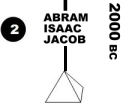
 Through Noah and his sons the earth was repopulated, and through the coming generations (literally, his seed) arrived a man of faith, Abraham. To Abraham, God gave three promises (12:1-3):
Through Noah and his sons the earth was repopulated, and through the coming generations (literally, his seed) arrived a man of faith, Abraham. To Abraham, God gave three promises (12:1-3):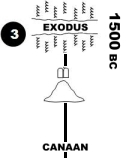
 The children of Jacob were carried to Egypt and made slaves by Pharaoh. But God blessed them. Four hundred years later, at the beginning of the book of Exodus, the children of Israel had grown to be a great nation. God raised up a man, Moses, to save the people through 10 plagues. In the end, all of Israel crossed the Red Sea, and God guided them to Mount Sinai to receive the law and covenant with God.
The children of Jacob were carried to Egypt and made slaves by Pharaoh. But God blessed them. Four hundred years later, at the beginning of the book of Exodus, the children of Israel had grown to be a great nation. God raised up a man, Moses, to save the people through 10 plagues. In the end, all of Israel crossed the Red Sea, and God guided them to Mount Sinai to receive the law and covenant with God.
 However, the people were not content with the judges. Wanting to be like the other nations, they asked for a king. Saul was the first king, but he was not obedient to God, and so Jehovah replaced him with David, a king after God’s own heart.
However, the people were not content with the judges. Wanting to be like the other nations, they asked for a king. Saul was the first king, but he was not obedient to God, and so Jehovah replaced him with David, a king after God’s own heart.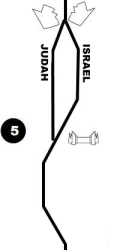
 The story of God’s people after Solomon is tumultuous. During the reign of his son Rehoboam, a division occurred between the twelve tribes: ten tribes to the north (Israel) and two tribes to the south (Judah). All of the kings of the northern kingdom were evil, not giving attention to the laws of God and serving the idols of the nations. So, God punished Israel, sending them to captivity in Assyria. The kings of the south were a little better. For a longer period of time, they retained their relationship with Jehovah. They worshipped in his temple in Jerusalem, but in the end, they sought after other gods, and Judah was carried away into Babylonian captivity.
The story of God’s people after Solomon is tumultuous. During the reign of his son Rehoboam, a division occurred between the twelve tribes: ten tribes to the north (Israel) and two tribes to the south (Judah). All of the kings of the northern kingdom were evil, not giving attention to the laws of God and serving the idols of the nations. So, God punished Israel, sending them to captivity in Assyria. The kings of the south were a little better. For a longer period of time, they retained their relationship with Jehovah. They worshipped in his temple in Jerusalem, but in the end, they sought after other gods, and Judah was carried away into Babylonian captivity.
 After many years of captivity, God permitted a portion of the Jews to return to their land. They rebuilt Jerusalem and the temple, but never attained the former glory of Israel. During this time God gave hope to Israel through the prophet Zechariah. Again, a “Branch” would govern as king and priest and rebuild the temple (6:12-13), this while the Israelites were currently rebuilding the physical temple.
After many years of captivity, God permitted a portion of the Jews to return to their land. They rebuilt Jerusalem and the temple, but never attained the former glory of Israel. During this time God gave hope to Israel through the prophet Zechariah. Again, a “Branch” would govern as king and priest and rebuild the temple (6:12-13), this while the Israelites were currently rebuilding the physical temple. Matthew 1:1-17 – The first book of New Testament, Matthew, opens with a list of men, the ancestors of Jesus. The purpose of this list is also the purpose of the book of Matthew: to show Jesus as descendant of Abraham and David. Jesus is the promised king and the fulfillment of the promise to Abraham (1:1).
Matthew 1:1-17 – The first book of New Testament, Matthew, opens with a list of men, the ancestors of Jesus. The purpose of this list is also the purpose of the book of Matthew: to show Jesus as descendant of Abraham and David. Jesus is the promised king and the fulfillment of the promise to Abraham (1:1).
